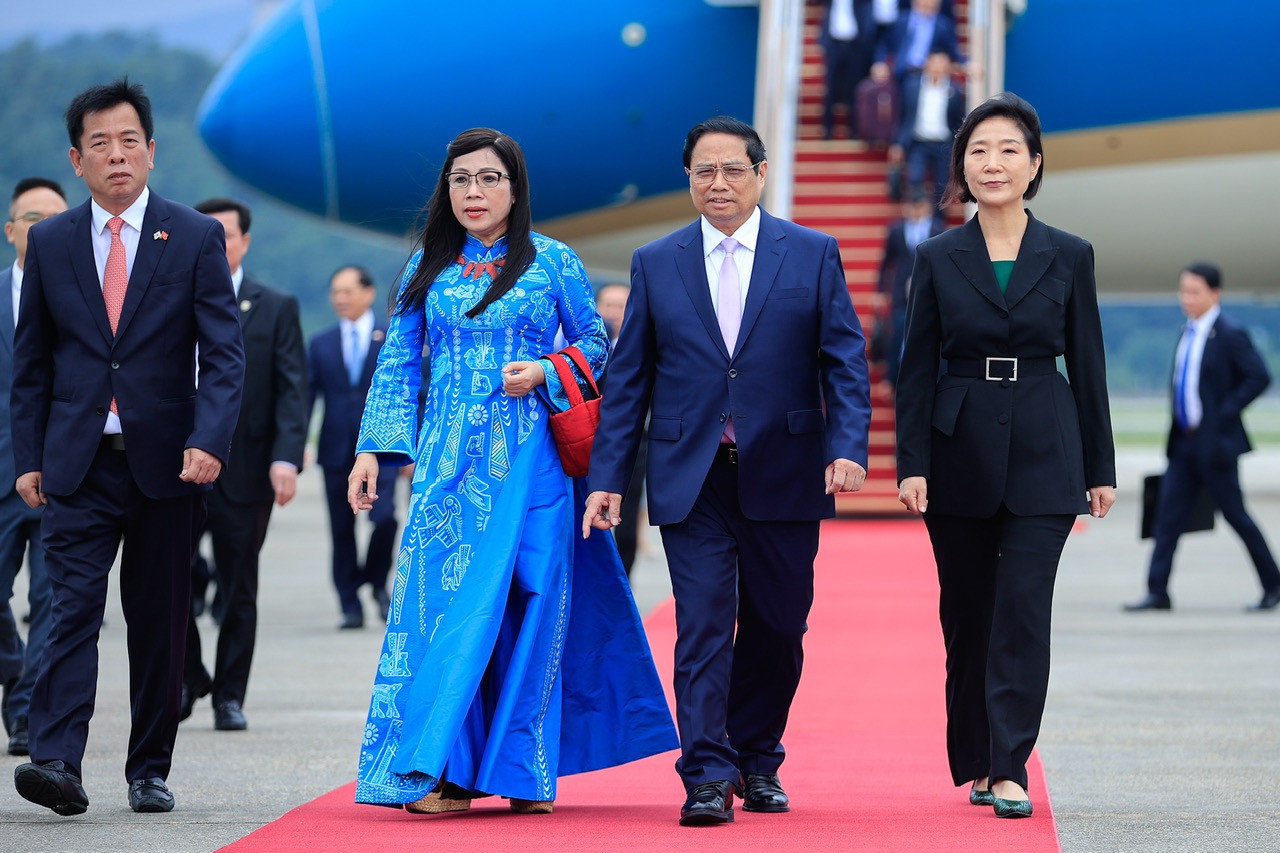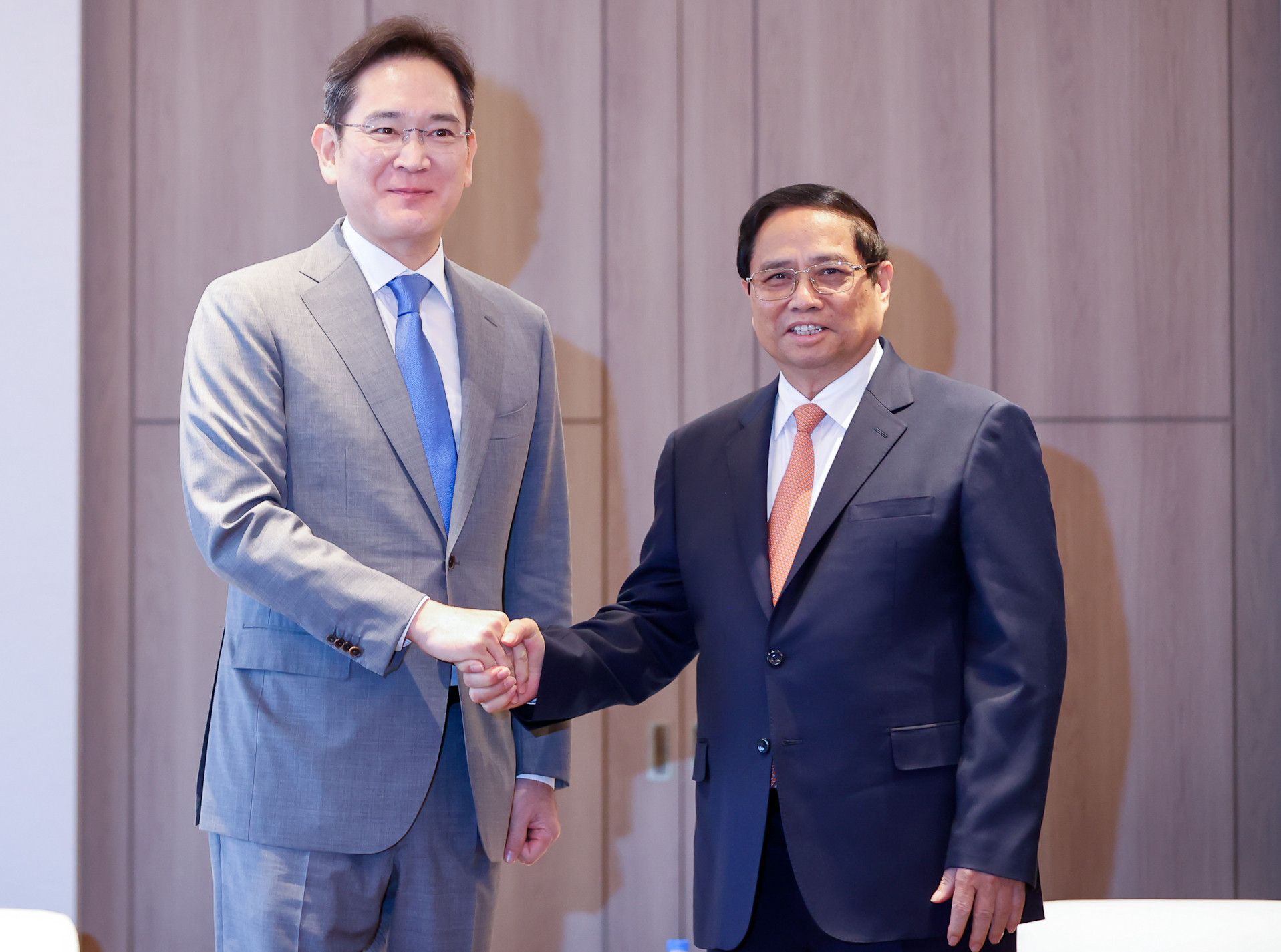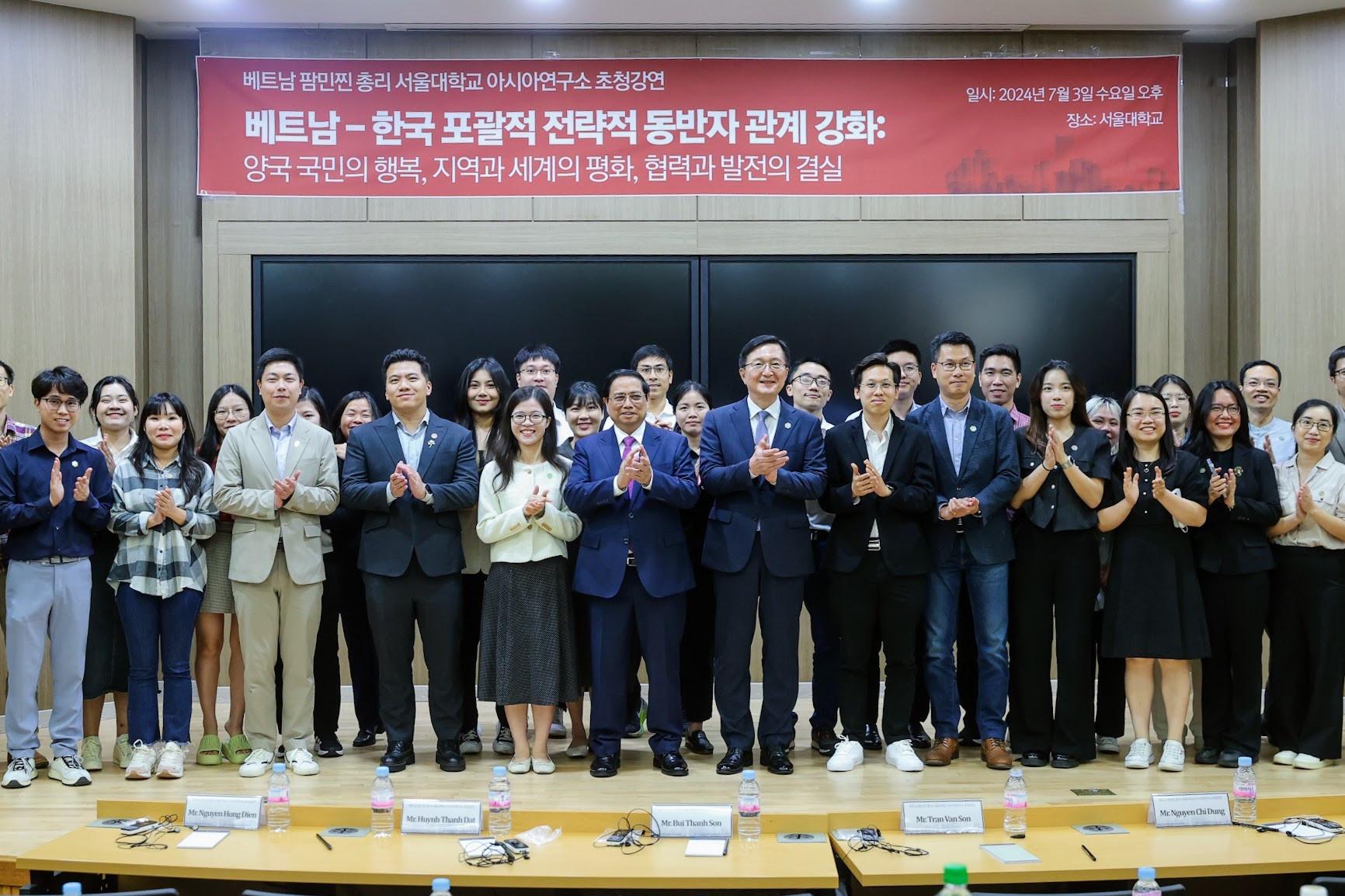Late on July 3, the plane carrying Prime Minister Pham Minh Chinh, his spouse, and the high-level Vietnamese delegation landed at Noi Bai International Airport, marking the successful conclusion of the official visit to South Korea from June 30 to July 3.
Discussing the results and highlights of the Prime Minister’s visit, Minister of Foreign Affairs Bui Thanh Son emphasized the significant and fruitful outcomes, describing the visit as rich in content and successful in achieving practical results.

Intensive agenda with 34 activities
Minister Bui Thanh Son noted that Prime Minister Pham Minh Chinh’s visit included a packed and varied program, featuring 34 activities with political leaders, economic entities, experts, scientists, friendship organizations, and NGOs.
The Prime Minister held talks with South Korean Prime Minister Han Duck Soo, attended the signing ceremony of cooperation agreements between ministries of both countries, and met with President Yoon Suk Yeol and the Speaker of South Korean National Assembly Woo Won Shik.
 |
 |
 |
 |
Additionally, the Prime Minister participated in and delivered speeches at three forums on economics, labor, tourism, and culture, and attended two seminars with leading South Korean economic organizations and experts in the fields of semiconductors and artificial intelligence (AI).
Notably, the Prime Minister delivered a policy speech at Seoul National University, visited Samsung’s semiconductor complex, and met with leaders of major South Korean conglomerates. He also visited a Vietnamese-Korean family.
During the visit, members of the Vietnamese delegation who are ministers and local officials had numerous meetings with their South Korean counterparts.
40 cooperation agreements signed
 |
 |
 |
 |
 |
|
 |
||
Minister Bui Thanh Son highlighted the substantial achievements of the visit, including the agreement between the leaders of both countries to issue a joint press statement after their talks, outlining eight major areas of cooperation.
The statement underscored the progress in Vietnam-South Korea relations since upgrading to a comprehensive strategic partnership in 2022. Both sides agreed on specific cooperation initiatives to enhance practical and effective collaboration in politics, diplomacy, trade, investment, science and technology, culture, tourism, labor, people-to-people exchanges and new fields of cooperation.
The two countries' ministries, agencies, and businesses signed 40 cooperation documents in digital transformation, renewable energy, green transition, climate change, semiconductors, AI, SMEs, cultural cooperation, and tourism.
"These engagements have deepened political trust and strengthened personal relationships between high-level leaders of both countries. Both sides are committed to implementing high-level agreements, aiming for substantial, effective, and long-term development of the comprehensive strategic partnership," said Minister Son.
He also noted that South Korean leaders emphasized the historical and cultural similarities between the two nations and the economic and human resource complementarities.
The nearly 300,000 Vietnamese citizens in South Korea and 200,000 South Korean citizens in Vietnam, including 90,000 Vietnam-Korea families, are natural, close-knit, and mutually beneficial connections that foster comprehensive and practical bilateral cooperation.
South Korean leaders reaffirmed Vietnam's strategic importance in South Korea's foreign policy, including the Indo-Pacific Strategy and the Korea-ASEAN Solidarity Initiative (KASI).
Prime Minister Pham Minh Chinh expressed Vietnam’s support for South Korea’s development policies, including the "Global Pivotal State" policy.
Expanding market access
 |
 |
 |
 |
The visit achieved tangible results, particularly in economic, trade, and investment cooperation, contributing to the implementation of the action program in June 2023.
Both sides affirmed that economic cooperation is a key pillar in their bilateral relations and agreed to implement specific measures to achieve the goal of increasing bilateral trade to $100 billion by 2025 and aiming for $150 billion by 2030 in a balanced and sustainable manner.
Both countries agreed to expedite procedures to open the market for Vietnamese grapefruit and South Korean melons in 2024.
South Korean leaders reaffirmed Vietnam's strategic partnership in official development cooperation (ODA) and committed to supporting Vietnamese businesses to integrate deeper into South Korea’s supply chain.
The two sides agreed to enhance cooperation in building a stable supply chain for core minerals to ensure economic security for both nations.
South Korean businesses praised Vietnam’s safe, stable investment environment and expressed interest in investing in supporting industries, digital transformation, green economy, semiconductors, environmentally friendly energy, biotechnology, 5G networks, and smart cities.
Establishing the Vietnam Cultural Center in South Korea
 |
 |
 |
 |
The visit also promoted human resources, labor, cultural, and tourism cooperation. South Korea committed to supporting Vietnam in training industrial labor and creating favorable conditions for Vietnamese workers to live and work stably in South Korea.
South Korean leaders welcomed and pledged to support the opening of the Vietnamese Consulate General in Busan in 2024 and the establishment of the Vietnam Cultural Center in South Korea. South Korea will share experiences and support Vietnam in developing its cultural industry.
Prime Minister Pham Minh Chinh proposed simplifying visa procedures and moving towards visa exemption for Vietnamese citizens entering South Korea to promote tourism cooperation. He also emphasized enhancing cooperation between localities and effectively implementing the “Meet Korea” mechanism in localities.
The Prime Minister also requested the South Korean government continue to support and create more favorable conditions for the Vietnamese community in South Korea.
"The visit has opened up numerous cooperation opportunities between the two countries in new fields such as innovation, high technology, renewable energy, digital transformation, green transition, climate change response, semiconductors, and AI," said Minister Son.
South Korean leaders expressed a desire to cooperate in achieving substantial results in these areas and agreed to explore mechanisms for discussing specific projects in semiconductors, AI, and innovation-driven human resource training.
South Korea committed to provide Vietnam with $30 million over four years for R&D projects and continuing the second phase of the Vietnam-Korea Institute of Science and Technology (VKIST).
Thu Hang
Photos by Nhat Bac - Duong Giang